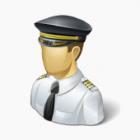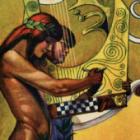
People's Movement and Migration Pattern Using Call Detail Records
The Bill and Melinda Gates foundation, interested in solving education or welfare related problems in developing countries, is looking for the solutions that could better gauge the demography of a country. Lack of any concrete census data from Afghanistan can be substituted by tracking migration patterns of people through Call Detail Records (CDR) from cellular subscribers.
We came up with a framework to visualize short-term movement over long distance and long-term migration patterns of people based on CDR, and to correlate these patterns. We track inter-provincial migration and how it is varies in response to Geopolitical events like Bomb-blasts, Flood, and Snowfall. CDR data is also supplemented with complementary data from airtime top up activity to account for socioeconomic factors of the subscriber.








